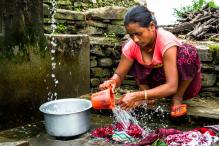The project aims to address crucial information gaps in agricultural and consumer price data in Mozambique that have a direct bearing on rural population and those worse-off. This will be done by leveraging digital technologies to collect food and price data based on an open portal and carrying out a proof of concept of a crowdsourcing model that can reach people outside the three main cities of the country, including the vast majority of population (who live in rural and peri-urban areas) as well as vulnerable groups such as those internally displaced by conflict or natural disasters with a view to monitor the actual cost of living of vulnerable groups and the vast majority of the population.
The project will be implemented by UN organizations in Mozambique with expertise in the area, including the United Nations University Word Institute for Development Economics Research (UNU-WIDER), WFP and FAO, as well as the main public university in Mozambique, Universidade Eduardo Mondlane (UEM) – Centro de Estudos de Economia e Gestao (CEEG). UNU-WIDER will leverage its existing partnership with UEM-CEEG, FAO will leverage its existing partnership with SIMA (Ministry of Agriculture) and WFP its statistical competencies on food prices and food insecurity which include partnerships with the National Food Systems Secretariat (SETSAN) and the Food Early Warning System (FEWS-NET).
The need for the project stems from the fact that detailed data on prices of key food items in Mozambique remains limited both in quantity (coverage) and quality (reliability). In fact, little is known about price trends outside major urban centers. Official price data, such as that which enters the Consumer Price Index, is only collected in three main cities; and other price information sources (namely, the Sistema de Informação de Mercados Agrícolas, SIMA) only cover specific central (urban or peri-urban) market locations, are often incomplete (contain missing data points) and are not easily accessible in real-time. Relatedly, there also is limited information about the distribution of prices for the same product within the same district or city, which is relevant from the point of view of understanding differences in the prices faced by the poor versus the rich (see Arndt et al., 2015).
Furthermore, public access to price data is extremely difficult. Data provided by INE is generally not easily available in long time series; and data collected within the SIMA (MADER) is only available in PDF format. As such, existing data cannot be easily transformed into the types of (long) time series required for further statistical analysis or visualization. Similarly, INE does not publish raw price data at the product or market levels.
The project is based on the premise that leveraging the expertise within the above-mentioned UN organizations in Mozambique and the partnerships created with national institutions, Mozambican policy analysts, researchers and graduate students at master’s and PhD levels will allow to develop high-quality data and analytical skills to disseminate decentralized consumer and food price data relevant for welfare and poverty related analyses that can shape medium-term policy and financing.


